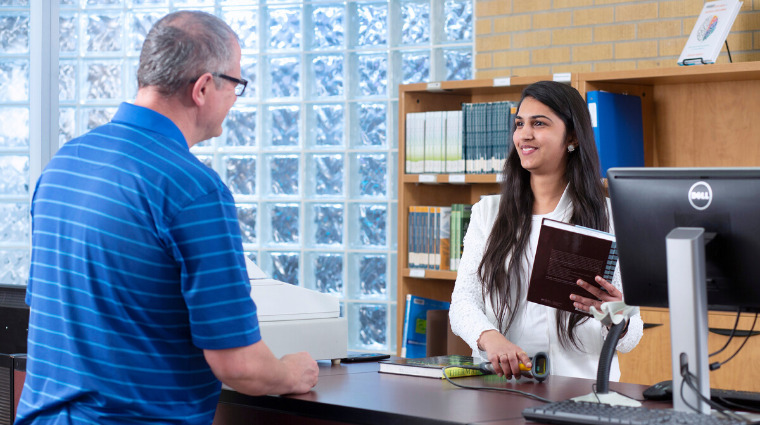
Work experience is an integral part of learning at Saskatchewan Polytechnic. This approach gives students a chance to apply theory to practice, and class projects to a real working environment.
Students in the Library and Information Technology diploma program gain work experience during a three-week practicum in each of their first and second years. But because of the provincial state of emergency due to the COVID-19 pandemic, students could not be placed in traditional practicums this spring because public buildings, including libraries, were ordered to close.
This presented a challenge, according to Chasity Berast, program head for the Library and Information Technology program.
Instructor Cynthia Bretell started working on an alternative to an in person work placement. “The COVID-19 pandemic provided the opportunity to develop a creative solution to a real problem – something polytechnics are known for,” said Bretell.
Through a year-end writing assignment, students applied research skills and shared their reflections on the ways libraries are dealing with being shut down, as well as the challenges of distance-learning and what skills students may have gained from having to finish their semester outside of the classroom.
Libraries have changed dramatically over the past decade, offering much more than physical books. For example, libraries offer users a range of eBooks, audiobooks, video and music services. Being able to access such resources digitally at a time when staying at home is encouraged helps encourage physical distancing, which in turn helps flatten the curve of new COVID-19 cases.
“Libraries have responded (to the pandemic) by keeping their patrons engaged at home,” notes Berast.
Though there is no argument that the pandemic has disrupted people’s lives and routines, the assignment has enabled students to recognize the impact libraries continue to have on society.
“With libraries being community hubs, COVID-19 has forced many of them to learn how to maintain connection with and provide support to their patrons online and in other unique ways that I feel they will adapt as a permanent part of their library outreach and promotion going forward,” student Toby Cocks wrote.
“As a student who is ready to enter the library world, it feels good to know that I will be a part of a world that strives to maintain connection and provide support and outreach to others no matter what is going on in the world.”
Library and Information Technology is a two-year diploma program. The program has
been developed in accordance with the Canadian Federation of Library Associations
Guidelines to address ongoing advances in technology and changing library user needs.
Students discuss the impact of new technologies, the political and economic factors
impacting information sharing, the benefits and risks of digital storage. Such skills
allow graduates to find careers where archives, records management, research and database
skills are required.

